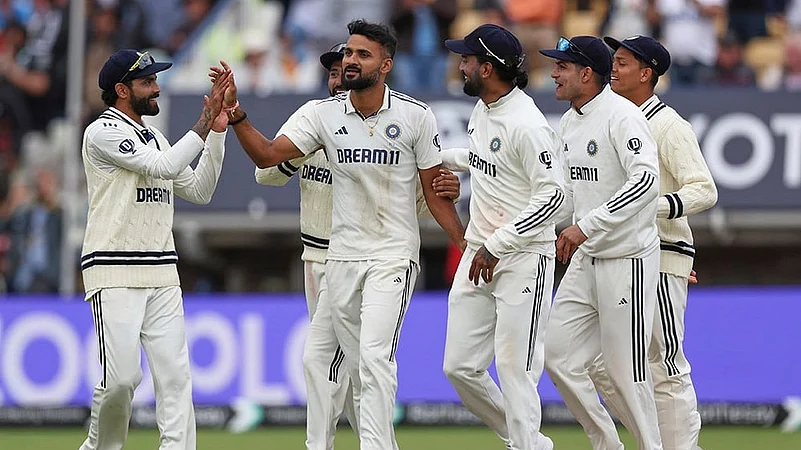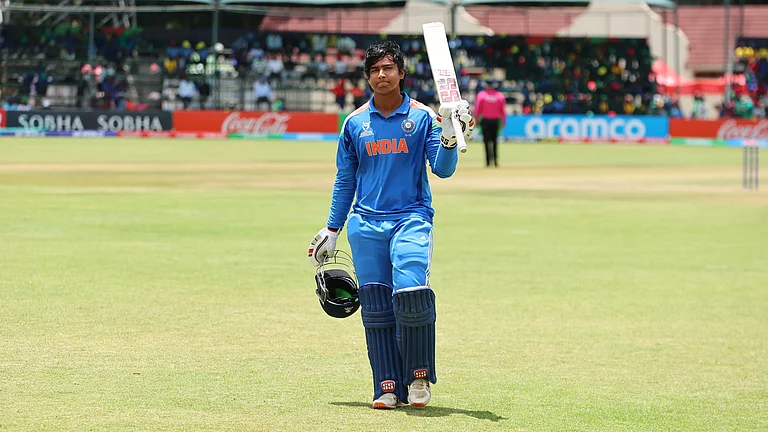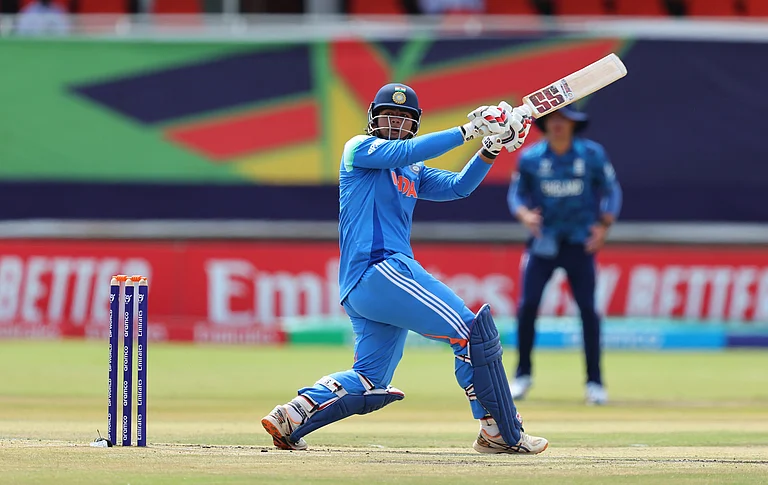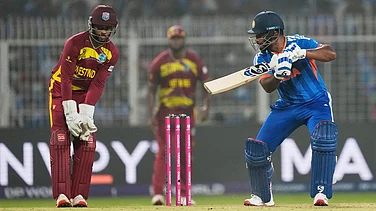India stormed back in style at Edgbaston, dismantling England by a massive 336 runs to register their first-ever Test victory at the venue and level the Anderson-Tendulkar Trophy series. After the heartbreak of losing from a winning position at Leeds, this was a performance of grit, discipline, and ruthless efficiency — achieved without some of India’s biggest names.
Gill’s Batting Brilliance Sets The Tone
Shubman Gill led from the front with a majestic display of batting across both innings. Having already notched up 269 in the first innings, Gill followed it up with a superb 161 in the second, becoming the first Indian batter to score a double century and a century in the same Test against England.
His contribution formed the backbone of India’s imposing totals — 587 in the first innings and a commanding 427/6 declared in the second — leaving England chasing an improbable 608 runs.
Gill was well supported by Rishabh Pant’s quickfire 65, KL Rahul’s composed fifty, and Jadeja’s unbeaten 69 in the second innings. India’s batters combined patience with intent, striking the right balance that England’s Bazballers failed to match.
The New-Ball Masterclass
If Gill laid the foundation, it was India’s bowlers — particularly with the new ball — who sealed the deal. Akash Deep, drafted in to replace Jasprit Bumrah, emerged as the hero with a sensational 10-wicket haul in just his second Test.
His ability to use the crease smartly and create angles left England’s batters groping. His dismissal of Joe Root with a delivery that angled in and seamed away to hit the stumps was a standout moment.
Siraj, too, was relentless, sharing the spoils and ensuring sustained pressure at both ends. India’s use of the new ball was decisive: 15 wickets for 300 runs with the new ball across both innings, compared to England’s 8 for 399.
Akash and Siraj’s good-length accuracy — especially their ability to hit the 7-8m length around 30% of the time — was far superior to England’s, who managed this only 15% of the time.
England Falter With The Bat
England’s Bazball philosophy backfired on a surface where patience was key. Ben Duckett, Zak Crawley, and others attacked without settling, and their recklessness handed the initiative to India’s bowlers. Even after rain shaved off time and Gill delayed the declaration slightly, England failed to show the defensive discipline required on a still-decent surface.
They folded for 271 in their second innings — lasting only 157 overs across both innings — and suffered the ignominy of seven ducks, four of them from their top six.
Bowling Attacks Compared
As former captains Mike Atherton and Nasser Hussain observed, this wasn’t a pitch that should have produced a result. But India’s bowlers extracted just enough from it, using skiddy trajectories and intelligent angles, unlike England’s bowlers who found little assistance.
Hussain pointed out that the conditions, especially with a dry surface at the end, played into the hands of India’s bowlers who were used to making such pitches work for them. Atherton summed it up aptly: “It was not so much a question of whether this England team, so disdainful of the concept of the draw, would contemplate playing for it but whether they were good enough to do so.”
A Statement Win
In the end, this was a win forged in the crucial windows when the ball was new, aided by a well-thought-out plan and precise execution. The absence of Bumrah didn’t matter — Akash Deep filled the void magnificently. The absence of Kohli and Rohit didn’t matter — Gill rose to the occasion.
India now head to The Lord's with renewed confidence, while England will have much to ponder over their tactics and execution. This was more than just a victory — it was a statement of India’s depth, adaptability, and hunger on the toughest away tours.


























